
MyersBriggs’ Sensing vs. Intuition Explained I Indeed Career Quick Tips YouTube
Of the four dichotomies, the largest discrepancy lies in the difference between Sensors and Intuitives. Whereas there is an approximate 50/50 split in the population between the other preferences, a full 70% of the population prefers Sensing versus only 30% favoring Intuition. When you distill it down, the difference between Sensors and Intuitives is this: […]
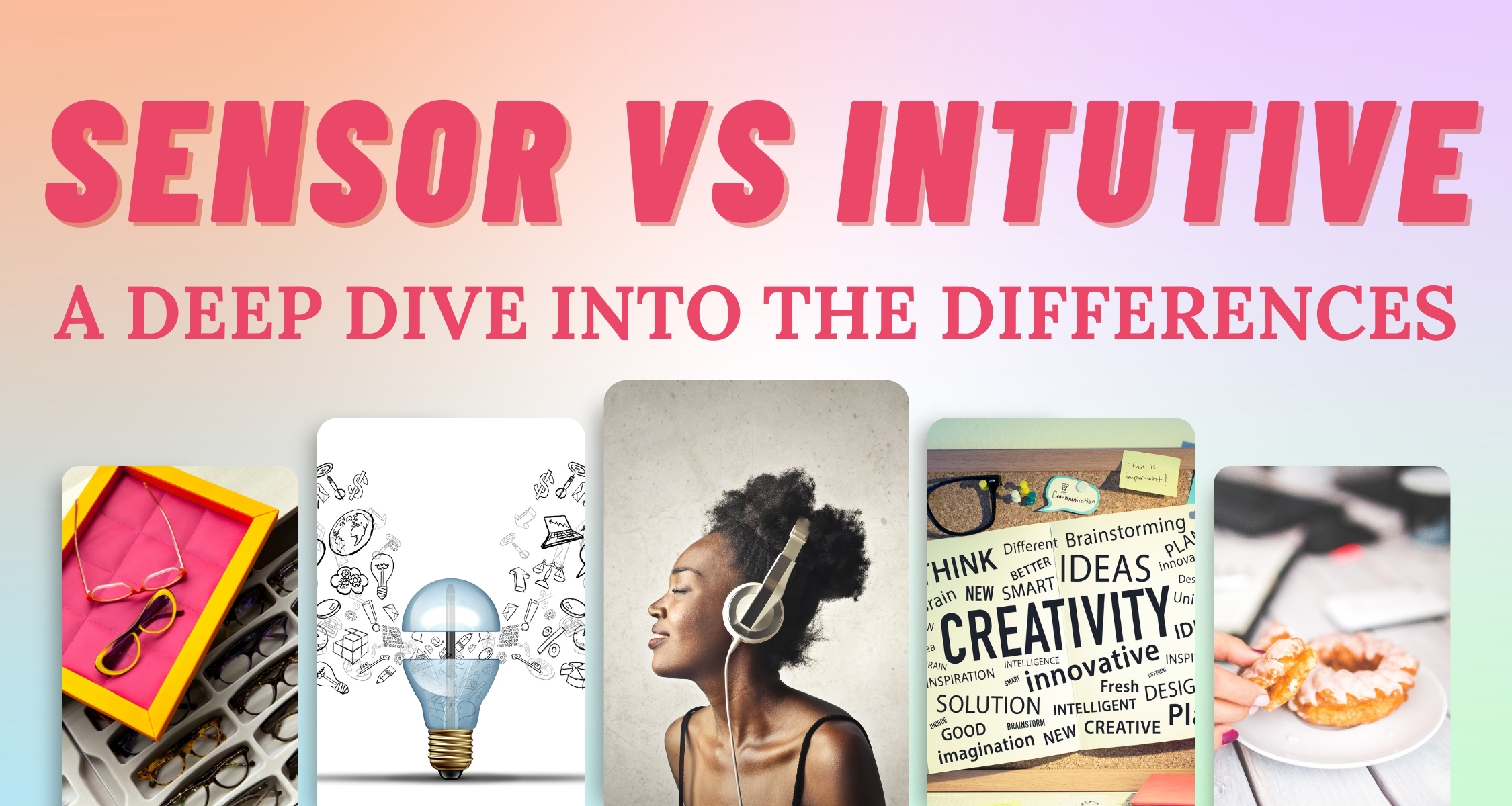
Sensor vs Intuitive Which Are You? So Syncd Personality Dating
Sensor vs. Intuitive Conversation. Sensors tend to express themselves in complete unbroken sentences. A topic, a subject, and a time frame are all likely to be present. They can babble like everyone else, but they're more inclined to do so in complete phrases. Intuitives, on the other extreme, talk in a more circular manner.

Client Engagement Session Infp personality, Personality psychology, Mbti personality
In Myers & Briggs' personality typing, the Sensing/Intuition dichotomy describes how a person takes in information. Sensing Types Sensors pay attention to their most immediate impressions; the "raw data" that they can see, hear and touch. They create meaning out of concrete information and rely heavily on past experiences to guide their future behavior. People with this preference are.

Sensing vs Intuition Illustrated Differences in Perception YouTube
Sensing vs intuition examples. Even though it can be easy to read in black and white, noticing these different personality type's methods can be harder in person. In order to bring clarity to this, we have come up with some real-life examples of the perceptions of an intuitive vs sensor personality. Music
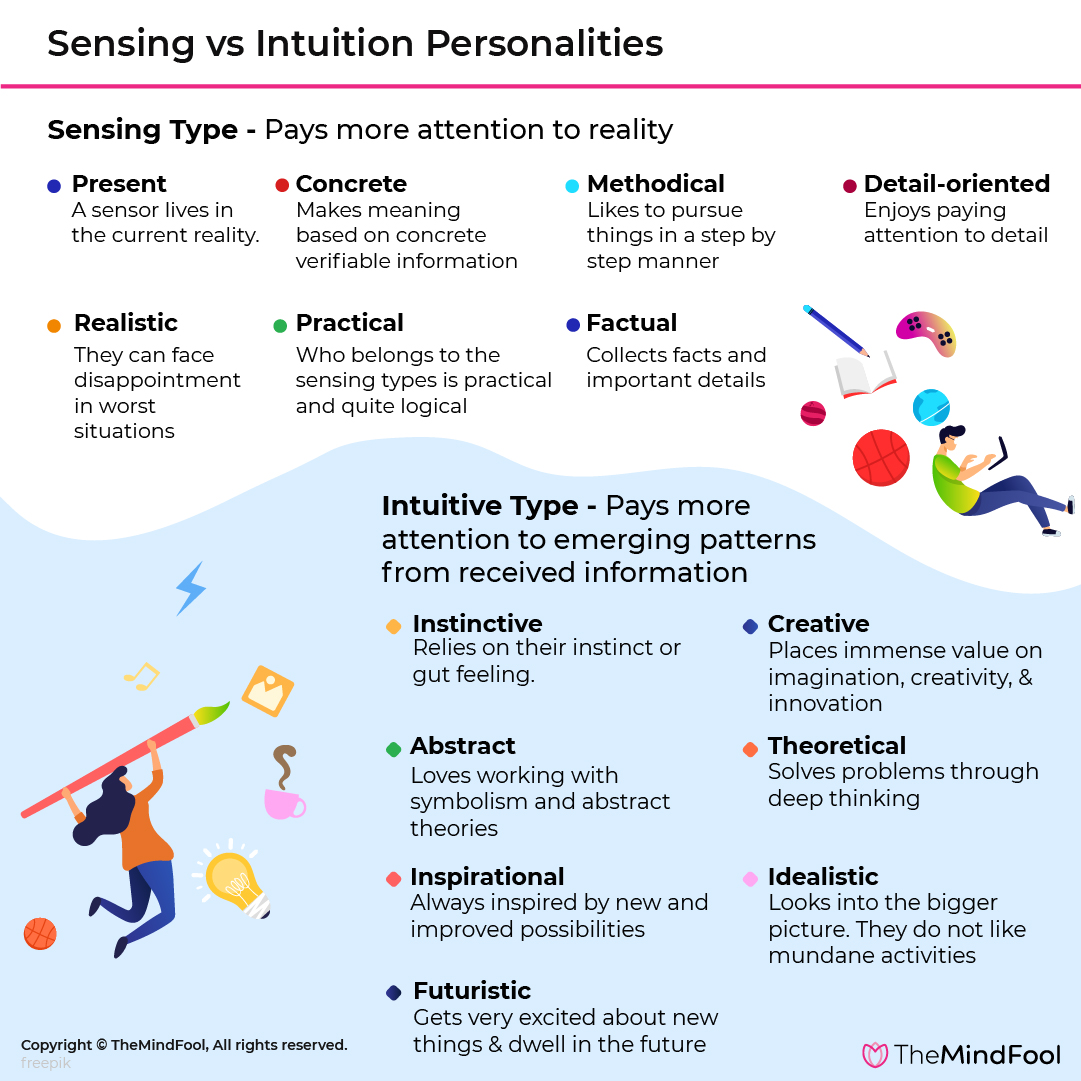
Sensing vs Intuition Intuitive Personality Sensing Personality Sensing vs Intuition Test
Intuitive individuals tend to focus on abstract ideas and concepts, while sensing individuals prefer to focus on concrete details and facts. Intuitive individuals are often described as imaginative, creative, and future-focused. They tend to rely on their instincts and intuition when making decisions, and may be more interested in exploring new.

Intuitives vs Sensors Where do You Fit? Personality Hunt
The Perceiving Function, Distilled. In a nutshell, the difference between Sensors and Intuitives is this: Sensors prefer tangible information, whereas Intuitives prefer speculation and depth of insight. So, while a Sensor will perceive data points individually (one by one) and literally (as they are in that moment), an Intuitive will perceive.

Sensing Vs. Intuitive Personality Type
Sensing vs Intuition. You might say that sensing vs intuition is closely related to the idea that we predominantly use either the left or right side of the brain. Let's be realistic, everyone uses both sides, it's just that we favor one side over the other. So maybe when you meet new people, you can decipher which side of the brain they use.

Intuitive vs Sensing Which One Is Stronger? Differences
But between the Sensing and Intuitive types, this clash in perspective can occur based on how events are experienced. Because these two styles gather and interpret information differently, their experiences can be polar opposite. Sensing types translate their world through tangible, concrete sensory information.

Sensing vs Intuitive The specifics and clarity vs the big picture and overall impression
5 Sensing vs. Intuition Examples Practicality vs. Ingenuity. Sensing types are thoroughly practical whereas Intuition gives rise to ingenuity and a vast imagination. 91% of those with the Intuitive trait say they like to discuss different views and theories of what the world could look like in the future, compared to 55% of those with the.

Intuitives vs. sensors Intp Personality, Personality Profile, Myers Briggs Personality Types
The proper word for sensing vs intuition is the Myers-Briggs Type Indicator (MBTI), which is a personality test that measures how people perceive the world and make decisions. Sensing means that a person relies on their senses and concrete information to understand the world around them. They are practical, detail-oriented, and prefer to focus.
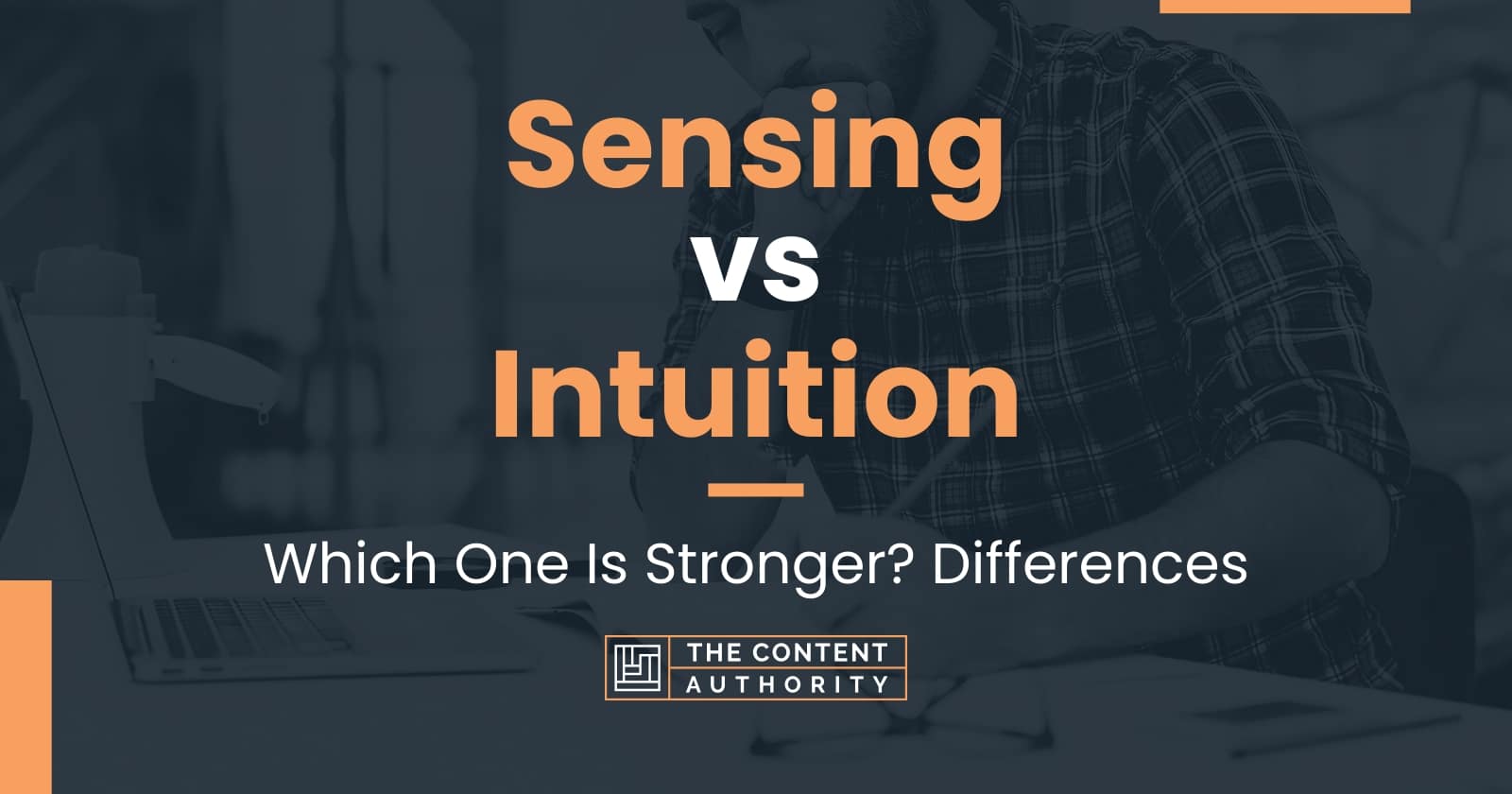
Sensing vs Intuition Which One Is Stronger? Differences
Some easy ways to identify a sensor or an intuitive: Sensors tend to be practical and down-to-earth. Intuitives tend to be imaginative and innovative. Sensors focus more on the present (today, this week) or the past than the future. Intuitives focus more on the future than the present or the past. Sensors prefer to talk about what is happening.

Intuitives vs Sensors Personality Types 🤯MindBlowing Differences! YouTube
It means that you tend to: GRAY AREA. If you scored 0-83, you are closer to INTUITION, and if you scored 84 or more, you are closer to SENSING. However, your answers suggest that you use both preferences quite often. If you are trying to identify your four-letter type, consider both options.
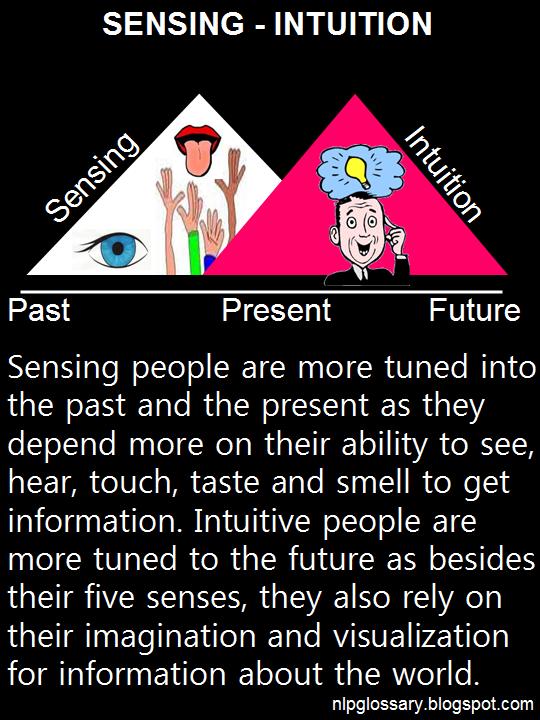
NLP GLOSSARY MBTI Sensing and Intuition
If the second letter of your Myers-Briggs type is an "N," you would be considered intuitive rather than sensing. Where S types favor their senses and facts, N's are concerned with deeper meanings and patterns. They often have an abstract, roundabout way of thinking. "Intuition is information gathering from a broader, more 'big picture.

Sensors vs Intuitives Here are the main differences in communi… Infp personality
Sensing types tend to pay attention to their immediate impressions, while Intuitive types are more inclined to believe in patterns, impressions, ideas, and future possibilities. Sensing types are present-focused and pay attention to details. They are practical and go by their senses when receiving outside information.
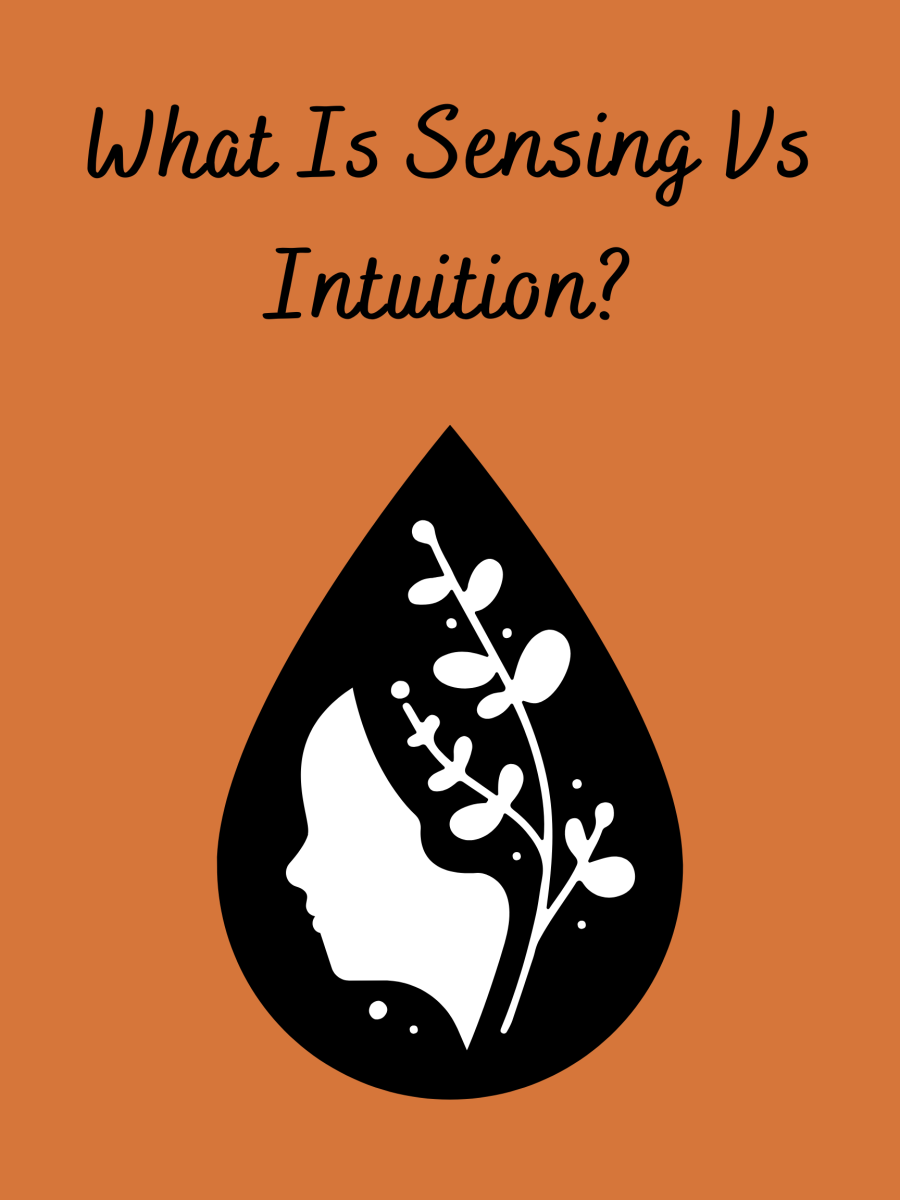
Breaking Down Myers Briggs What Is Sensing vs. Intuition? Owlcation
Intuiting and Sensing represent two very different strategies for dealing with the world. Both strategies have very real advantages over the other, depending on the situation. Sensing vs intuition - trying to compare the two is kind of like trying to compare two different kinds of athletes, for example a sprinter and a marathoner.

Intuition vs Sensing Are You a Sensor or an Intuitive? 👼 YouTube
Sensor vs. intuitive distribution. It's estimated that 70% of the population are sensors, and 30% are intuitives. Both have their own unique strengths and weaknesses. Understanding sensors vs. intuitives can help you in your everyday life. For example, if you know that your boss is a sensor, you can adjust your communication style to make.